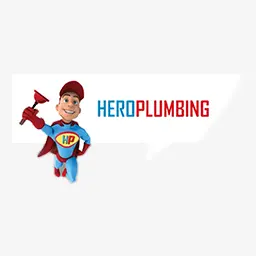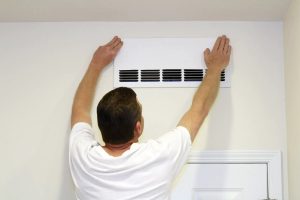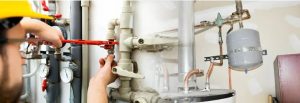Table Of Contents
- Finding An Efficient Heater In Australia
- Features Of Heaters To Know Before Buying
- Safety Should Always Be The First Priority
- Which Heaters Can You Leave On All Night?
- Different Fuel Types For Heaters
- Different Types Of Electric Heaters Available
- Energy-Efficient And Cost-Efficient Electric Heaters
- Which Heater To Buy At Last?
Finding An Efficient Heater In Australia
In order to stay warm on chilly winter days, the use of a heater is the quickest and easiest solution. It can be tough to find effective and energy-efficient heaters when such a wide range of options are available on the market. Fortunately, you don’t have to worry about making this decision alone because we will help you choose an energy-efficient heating option that will heat your house cheaply.
The word energy-efficient refers to an electrical appliance that consumes less power than other appliances. They not only save electricity but are also environmentally friendly and easier to afford.
Features Of Heaters To Know Before Buying
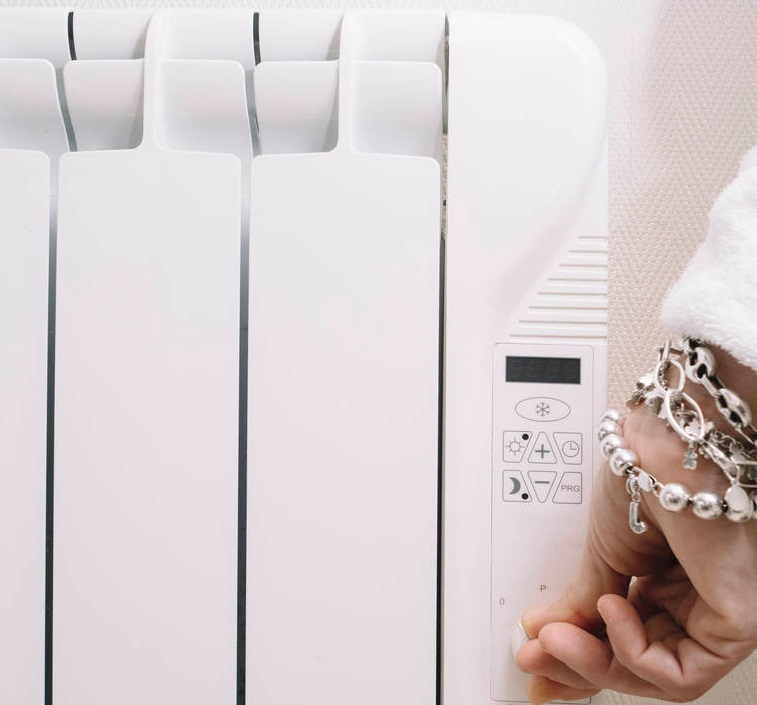
Here are some features that an efficient heater should have. You should know them before hitting the shops to buy one.
Built-In Timer
A timer helps you set the heater to run automatically at fixed times. This is useful to heat the room before you get up in the morning or to turn off the heater at night when you are asleep. A built-in timer feature is a more advanced option than using a smart plug or timer switch. Plus, the plugs usually have no guarantee, and no one knows if they can deal with your heater’s high current draw without causing a fire risk.
Frost Watch
Frost watch heaters can be beneficial in colder climates where temperatures can drop below zero degrees. Usually, the heaters freeze due to continuous working and low temperatures. However, frost watch protection helps prevent frost from accumulating on the heater, thus saving you from severe gas heater damage.
Thermostat
The thermostat on your heater allows you to regulate and set a particular temperature in the room. Once the set temperature is reached, the thermostat automatically turns off the heater. This not only makes the heaters safe to use but is also good to maintain a constant temperature in any place. Without a thermostat, your heater will run continuously, making your room uncomfortably hot and your electricity consumption high.
Heater thermostats can be both mechanical and digital. Mechanical thermostats use a bi-metallic strip in which two different metals with specific thermal expansion rates are laminated together. As the temperature changes, bending or straightening of the strip opens or closes a circuit. This, in turn, switches the heater on or off accordingly. Nowadays, modern thermostats are digital, which provides greater functionality, such as the facility of programmable settings.
Thermal Cut-Out
A thermal cut-out is an essential safety feature that switches the heater off if it overheats, reducing the risk of fire. Irrespective of the presence of a thermal cut-out, you should never put towels or other items over your heater to dry them. Instead, use an appropriate drying rack for this purpose.
Some heaters may have a fuse instead of a switch, but once the fuse is triggered, you need to replace it before you put your heater to work again. This service is very costly, sometimes even more than the heater’s original price tag. A thermal fuse is not as good to use as a thermal switch. Unfortunately, a consumer may not readily know whether a heater has this sort of thermal cut-out device or not.
Dump Switch
A dump switch is another safety device that shuts the gas off if the heater gets knocked over. There is a small weight inside the dump switch, which, when pressed down, completes the circuit and allows gas to pass to the heater. Then, in case of over-heating or excessive gas release, it changes its position to stop the incoming gas.
Warranty
Heaters usually have a one or two-year warranty. However, some offer more or even ‘lifetime’ cover depending on their quality. So if you have enough money, make sure to buy a heater with a full warranty. Regardless of warranty, just remember your rights under the Australian Consumer Law that the seasonal nature of heaters means you may only have used your heater for a few months out of a given 12-month period.
Long Cord
While buying heaters, cord length is an important consideration from both a using ability and safety alert perspective. You need a cord long enough to position your heater wherever it is most suitable, but not so long that it becomes a trip hazard. You would definitely not want that extra risk to trip and fall on it or knock the heater over. Heater cord lengths range from a meter up to 2.8 metres, with an average of 1.8 meters. Plus, larger heaters have slightly longer cords.
Right Size
The size of the area matters when it comes to buying heating systems. Many of us choose the wrong sized heaters that don’t warm our rooms enough. This leads to more significant problems such as high bills and an unwelcoming environment. So the first step would be to measure the space you want to heat in square metres.
For that, simply multiply your room’s length by its width. If you live in ample space, you should check your selected gas heater’s reviews. Only buy if it is capable enough according to your space. However, suppose you have a small room, enclosed space like a bathroom or bedroom. In that case, an electric heater will prove a good companion, particularly one with a fan.
Plus, remember a thermostat is a must if you are going to use it for more extended periods. Any portable electric heater will be effective if you have an insulated small room without draughts.
Safety Should Always Be The First Priority
Safety should be a high priority on your list when purchasing a heater. Avoid space heaters as they are responsible for around 47% of all home heating-related fires and 84% of associated deaths every year.
Nowadays, modern electric heaters are considered much safer than their predecessors. Electric heaters consume less electricity than liquid fuel combustion heaters that burn kerosene or other accelerants. These modern heaters also come with built-in safety features, such as thermal cut-outs and dump switches designed to keep you and your house safe.
Are Electric Heaters Safe to Use Without Ventilation?

Electric heaters are reliable as they do not produce carbon monoxide gas, kerosene, or other combustible pollutants to create heat. Thus, you can use electric heaters without any worries but with a couple of caveats.
The space heater may evaporate moisture from the air, but an oil column heater will not, making it suitable for people who suffer from dry skin. However, the combination of warmth and moisture appreciates moulding growth, which can also cause respiratory issues and other problems.
Maintain Circulation of Air in Your Room
You don’t constantly need ventilation, but you still need a way to pass the air in your room to get the most out of a convection heater. For example, a ceiling fan on the reverse can do the job. You can even use a pedestal fan to distribute the heat evenly rather than having it straight off above the heater.
On the other hand, remember that gas heaters that don’t use extra fluids need ventilation. Apart from that, always avoid using unflued gas heaters in confined spaces due to the risk of carbon monoxide poisoning.
Convection Heaters Can Also Be a Reliable Option
Convection heaters such as oil column and panel heaters are also safe to use as they have lower surface temperatures. Due to their greater weight or wall mounting, they are more stable and have no exposed heating elements.
Although the oil column heaters are relatively safe compared to space heaters, there’s still a risk of fire. This risk can be due to faulty wiring, unsuitable connection to an extension cord, tipping over, oil leaks, or fires caused by items and clothes placed on the heater, etc. They may not tend to get as hot on the surface as other types of heaters, but children and even adults can still get a nasty burn if they’re not careful.
Safety Tips for Using a Heater
- Whatever type of heater you’re using, you should always aim to follow these tips for home safety.
- Use a space heater only on the floor. Never place it on a shelf, bench, or any high or uneven surface.
- Avoid using a space heater in bathrooms, kitchens, or other wet areas as water and electricity are a bad combination.
- Keep clothes, curtains, and furniture away from your heater. Moreover, always be careful of the risk of items falling onto the heater from above.
- Never leave a heater near your walls and furniture, especially if there are small children around.
Which Heaters Can You Leave On All Night?
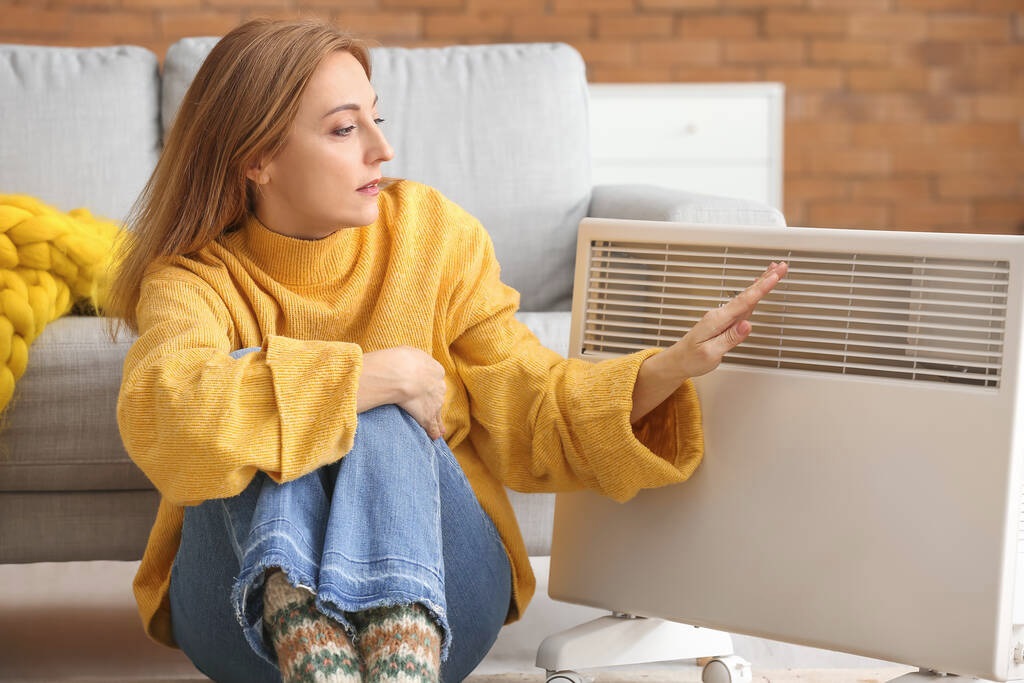
If you have to leave your heater on all night, convection heaters such as oil column or panel heaters are the best choice. Their gentle convection heating is conducive to an easy night’s sleep. They additionally don’t get as hot as other heaters when left on for a more extended period. So they’re safer to touch (because they generally have a larger heating surface area and a safe electric panel). If you are looking for heaters for your children’s rooms, panel heaters can be a great option. You can attach them to a wall so they don’t fall over.
Plus, they usually have a low-temperature contact surface. Irrespective of heater type, if you’re looking for one to keep you warm and cosy while you go to sleep, you should look for a heater with a timer so it can turn itself off once you’re asleep to save fuel. Moreover, you can also set the times to let the heater turn itself on to warm your room again in the morning so that getting out of your bed on a chilly morning won’t be an issue.
Different Fuel Types For Heaters
When it comes to powering heaters, different types of fuels are available, some of which are more energy-saving than others and can also be used in portable heaters. Here are some well-known fuel options for heaters.
- Electricity
- Solar energy
- Gas fuel (natural or LPG)
- Solid fuel (wood, coal, etc.)
As you can tell, the most energy-efficient heaters are often the ones using solar energy. After that, natural or LPG gas comes in second place. Solid fuel options are also quite reliable and convenient to afford, but some solid masses produce more greenhouse gases than others.
So if you’re conscious of carbon consumption in your house, remember to add carbon monoxide alarms to your buying list. Electric heaters are generally big energy eaters in winter due to their constant need for grid power but are more affordable to purchase compared to gas heaters.
Different Types Of Electric Heaters Available
For homeowners who prefer electric heaters due to their cheaper upfront cost and relatively more straightforward installation process, there are several different types to consider. Here are the most common types to choose from.
Radiant Heater
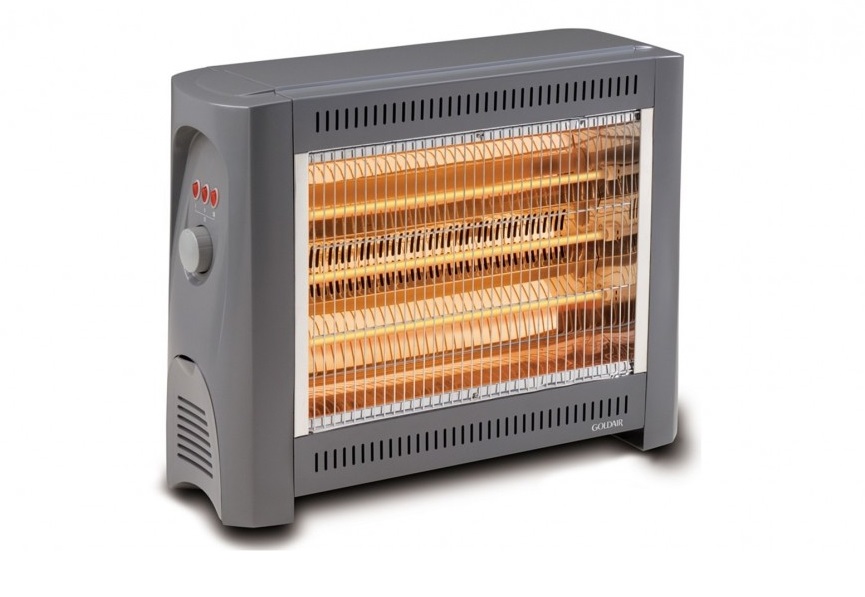
These are primarily used as personal heaters. Radiant heaters supply direct heat from a red-hot heating substance to the floor or panels in the wall or roof of the house. It is often located on a floor or beside the walls of a house.
Advantages
- Floor and wall-mounted models
- Easy to afford
- Has a cosy and personal warming effect, feels like sitting in front of a fire
Disadvantages
- They are not going to heat the air evenly in a room.
- The moderately exposed heating element can be a fire hazard. For example, a piece of cloth dropped over it may cause a fire, or small children playing around may burn themselves. So try to always be careful.
Price
It costs from $20 to $200, depending on your needs and house size.
Oil-Filled Heater
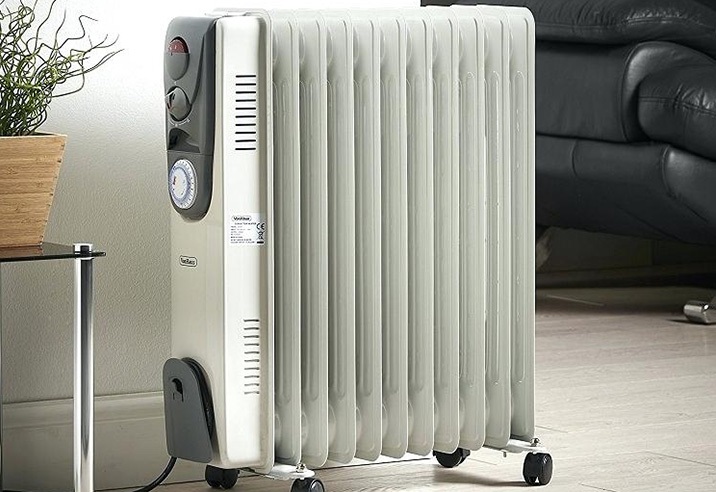
These don’t really burn oil but use electricity as a heating element to heat the oil-filled inside their columns called ‘fins.’ The heat is then transferred to the casing and the air circulating the fins from the oil.
Some column heaters are not even oil-filled but instead use some other kind of material or heating technology, but it works the same way. The risk of catching fire with an oil column heater is low compared to other heater types but never zero.
Advantages
- Column heaters are beneficial in rooms where they will be turned on for a longer measure of time.
- The surfaces don’t get super-hot with this heater type, irrespective of other kinds of electric radiators.
- You can utilise a roof fan at a low speed to help the heater circulate the hotness quicker and more equitably.
Disadvantages
- They depend on regular convection, taking more time to warm a room than fan-assisted radiators of comparative limit.
- If there’s very little air development the hotness may not be conveyed uniformly.
Price
Oil-filled heaters cost between $50 to $380.
Convection and Board Radiators
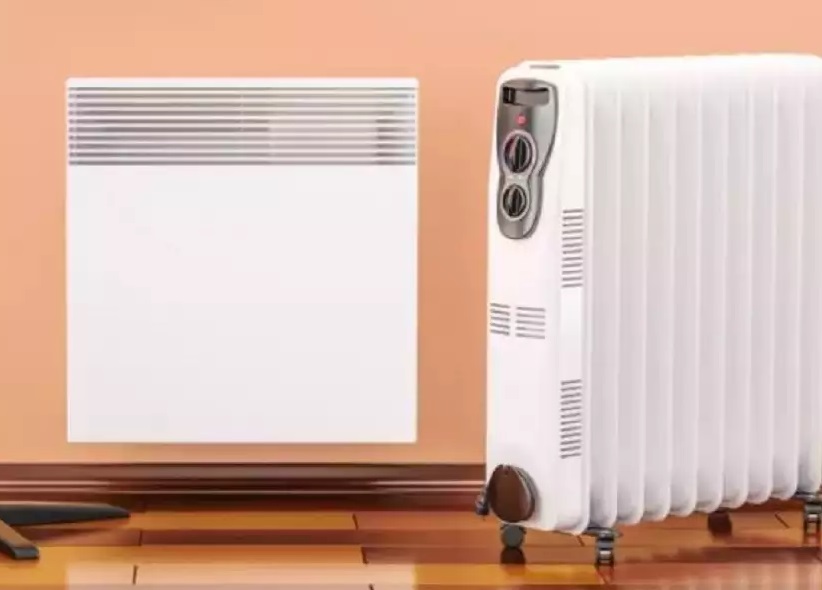
These radiators draw cold air over an electric warming component. The warmed air then leaves the radiator and ascends towards the roof, while cooler air moves in to supplant it. They normally have a fan that improves the convection impact by constraining the warm air from the warmer.
When you utilise this fan heater, the room will warm up more rapidly and equitably. Without it, the temperature of the air in each layer will differ. Board radiators are a sort of convection heater. They regularly accompany a divider mounting pack for an extremely durable connection. This pack is usually similar to an old-style radiator (however, some convection heaters are likewise divider mountable).
Advantages
- More versatile than their oil-filled column heaters since they’re fundamentally lighter.
- Heat the air in a room equally and rapidly.
- Like a column heater, you can utilise a roof fan at a low speed to convey the hotness quicker.
Disadvantages
- Some models, especially board radiators, are costly to purchase.
- These warmers that come with fans can be loud.
Price
Convection and board heaters cost from $30 to $700.
Ceramic Fan or Blow Heater
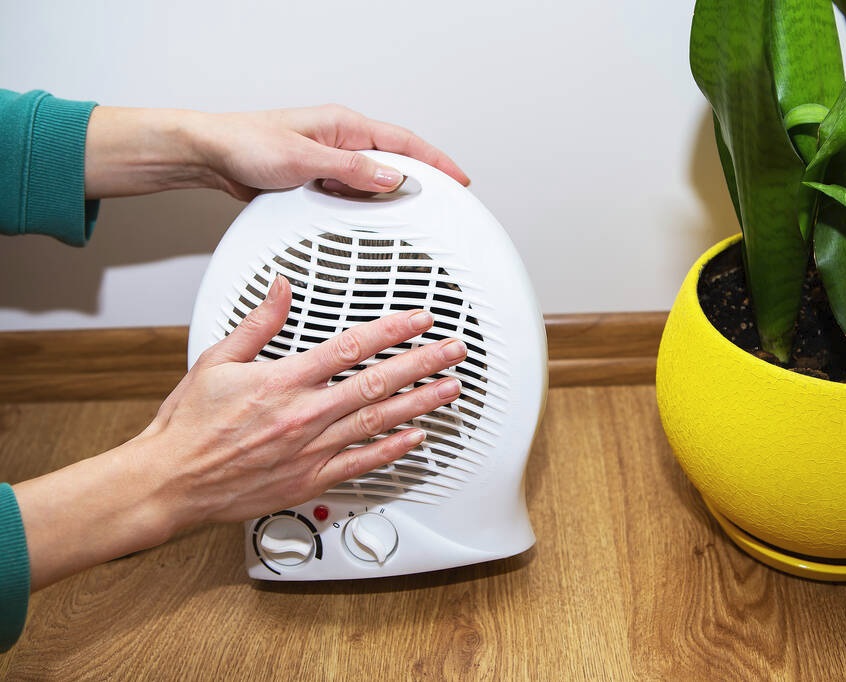
The term ceramic is related to fan heaters. These heaters have a security advantage as the earthenware cools quicker than the metallic warming components. The Dyson heater falls into this ceramic oscillating heating classification.
Advantages
- Generally, these heaters are more modest and compact than other electric heaters.
- Can heat the air in a room quickly and uniformly.
- It consumes less power and fuels and thus, doesn’t cost a lot.
Disadvantages
- They can be very noisy with the fan on full power. However, they are generally sensibly calm at lower fan speeds.
Price
It costs from $60 to $900.
Infrared Heater
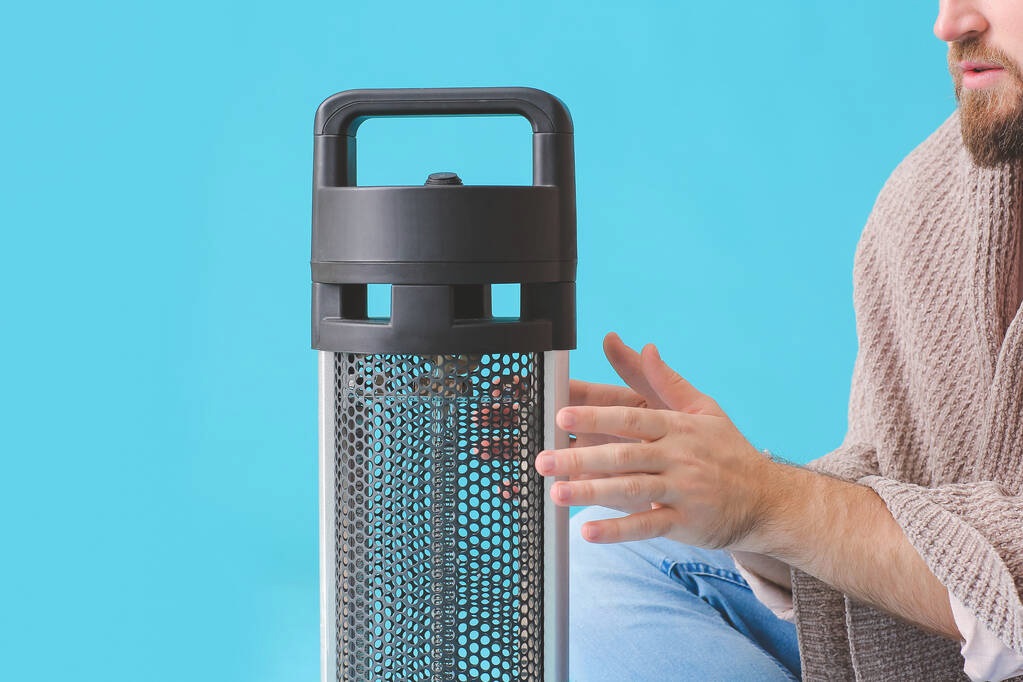
A late contestant into the market, infrared heaters heat the room like the sun warms your face (without the UV beams, so no risk of skin disease). While different radiators heat up the air in a space, infrared heaters warm up objects.
According to recently completed tests on two 450W infrared board heaters by Shopper NZ, these heaters were the most different types of heating systems in both execution and expense.
Advantages
- Can be divider or roof-mounted – the most inconspicuous type of warming.
- Heats the articles in a room instead of dispersing.
- It can be mounted behind mirrors to warm a washroom (mirrors let the infrared beams go through).
- Silent and provide minor support.
Disadvantages
- It can be very costly.
- Heat is released straightforwardly, so it can be hard to bear sometimes.
- It can’t be used with inverse windows. In any case, heat goes straight through.
Price
Infrared heaters cost from $300 to $900.
Overall, keeping in view all the points mentioned above, halogen radiators are one of the cheapest sorts of electric warmers. They average around 1200W and can give you instant heat.
They got this name because the halogen element inside their bulb or lamp provides a radiant warmth when combined with electricity. Radiant heat means halogen heaters will easily heat the area in front of them. This brilliant hotness implies that these warmers will warm up the space super-fast, which is incredible assuming you need a speedy impact of hotness. However, you might not find it efficient in case you are hoping to warm up an entire room.
Energy-Efficient And Cost-Efficient Electric Heaters
Unlike an air conditioner, your electric radiator is essentially 100% productive, which basically means that all of the power coming in is being changed into warmth (underlying fans and electronic controls likewise utilise some). In any case, that doesn’t mean one 2000W heater will yield precisely as much hotness as another.
For instance, one might have a low-quality indoor regulator which prevents the heater from running at full power when it should. You can work on the adequacy of an electric radiator by ensuring its hotness isn’t squandered. An ideal way of doing that is by protecting your home and halting drafts.
Sadly, none of these electric heaters is cost-effective compared with different types of heaters. However, they are a minimally-expensive productive type of heating in Australia. The most energy-saving ones are solar heating systems, gas heaters, and wood heaters.
Which Heater To Buy At Last?
It can be a particularly stressful task to pick which heater would be the best for your house, but often, gas heaters are a good option for those looking to save on energy in the long run. They are not expensive to operate and provide productive results. However, these heaters can be harmful, especially if you have kids around.
While you can buy a modernistic design to manage some of these issues, the majority of the responsibility falls on you to keep you and your household safe if you use a gas heater. Suppose you decide a gas heater is the best fit for your home based on energy efficiency. In this case, it is better to reach out to a professional to help with the installation and future maintenance process, as attempting these yourself can be dangerous.




